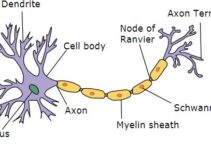Some drink it because of the funny feeling it induces, others to get over a bad situation. While there are countless reasons why people drink alcohol, the fact remains that the effects of consuming beverages containing this substance are not just an issue of concern when these beverages are taken excessively but even in moderation. Alcohol is a substance that has a dual effect on the nervous system. The early stages of alcohol intake are associated with a feeling of euphoria mediated by dopamine and serotonin, neurotransmitters released during this period. Unfortunately, this euphoria is only short-lived as the primary effect of alcohol, neuro-depression, soon kicks in. Over time, there is an observed decline in cognitive function. Until now, this decline in cognitive function was thought to occur as a result of excessive alcohol intake, however, according to a study published on July 14 in the open access journal PLOS medicine, even in moderation, alcohol intake may also contribute to a decline in cognitive function. The study also proposed a mechanism for this deterioration.

Alcoholic Spirits
Read Also: Human Attraction to Alcohol May Have Come from Ape Ancestors
How moderate levels of alcohol consumption contribute to cognitive decline
To understand the effects of alcohol intake on cognitive function, the team carried out a study involving 20,965 participants with a mean age of 55 years, 48.6% of whom were females. These people were obtained from the UK Biobank, a large-scale medical database and research resource containing in-depth data from about 500,000 UK participants. They scanned the brains of the participants using magnetic resonance imaging (MRI). Additionally, they used MRI to get images of the livers of about 7,000 participants. Lastly, they also accessed the overall cognitive and motor functions of each participant using a series of tests.
The team discovered that alcohol intake above seven units per week was linked with elevated iron levels in certain areas of the brain. Notable among these areas is the basal ganglia, a group of brain areas involved in the control of motor activities, cognition, procedural learning, emotion, and more.
They then theorized that a decline in cognitive function not only occurs in excessive alcohol consumption as initially thought but occurs even when this substance is taken in moderation. They linked this alcohol-induced decline in cognitive function to increased levels of iron in the brain.
Read Also: Governmental Guidelines on Alcohol Drinking Limits Need to Be Lowered Study Shows
Clinical significance
Most people who take alcohol claim to do so in moderation, and the misguided notions that alcohol taken in moderation may not have serious effects on cognitive function have seriously affected interventions aimed at reducing its consumption in the general population. However, with the clarity this study brings on the subject, alcohol sensitization both within and outside the clinics could yield positive results. Physicians guided by the results of this study can give accurate medical advice that will ensure the safety of their patients.
Conclusion
This is the biggest study so far on the link between moderate levels of alcohol intake and brain iron levels. However, despite its advantages, it presents certain limitations including the lack of the study to account for other factors that increase brain iron levels and the possibility of falsehood in the statements of participants (about 570 participants) who claimed to be non-drinkers.
Read Also: Addiction Treatment: Ayahuasca May Help Addicts Stop Abusing Alcohol and Drugs
References
FEEDBACK:



